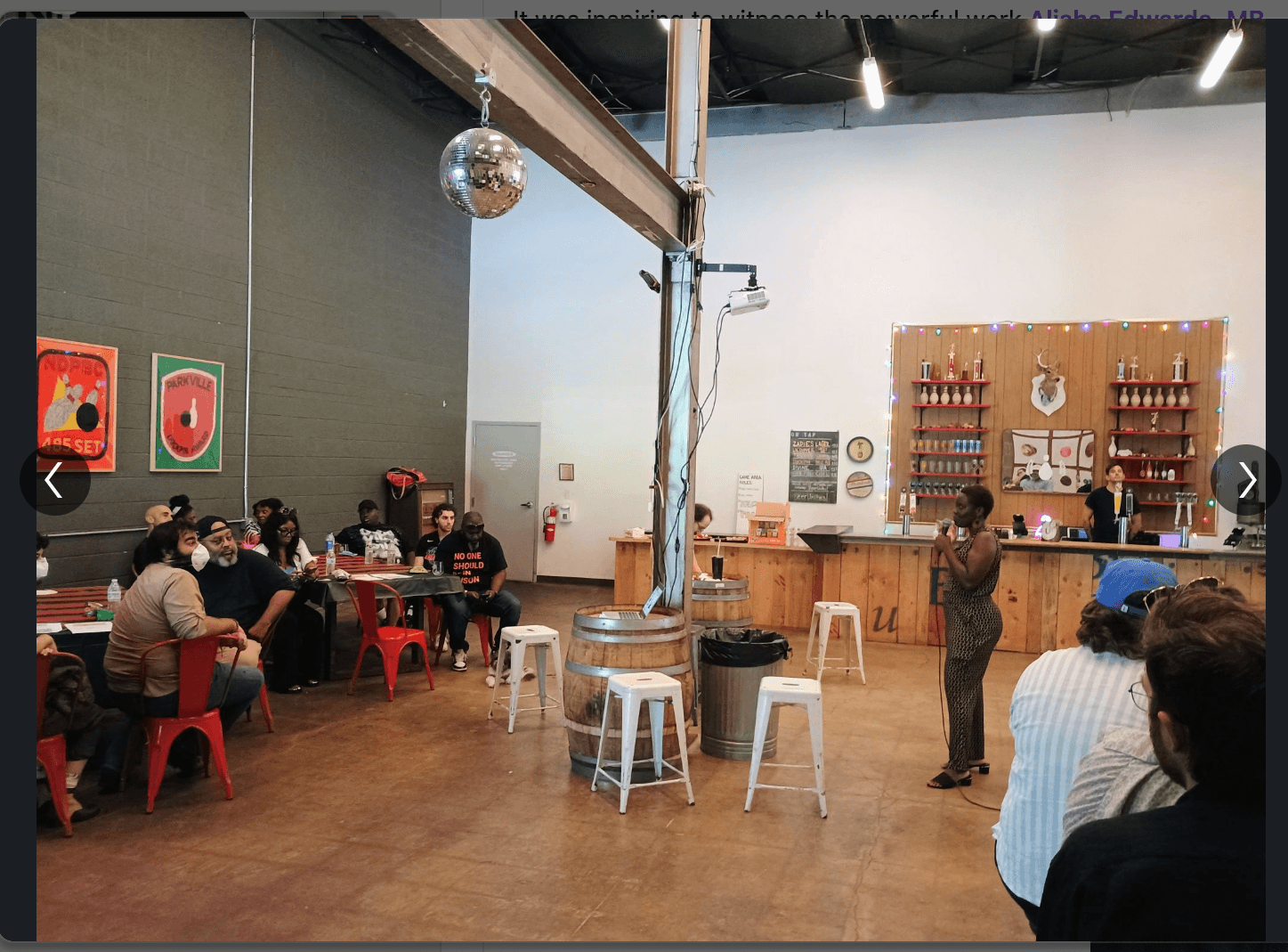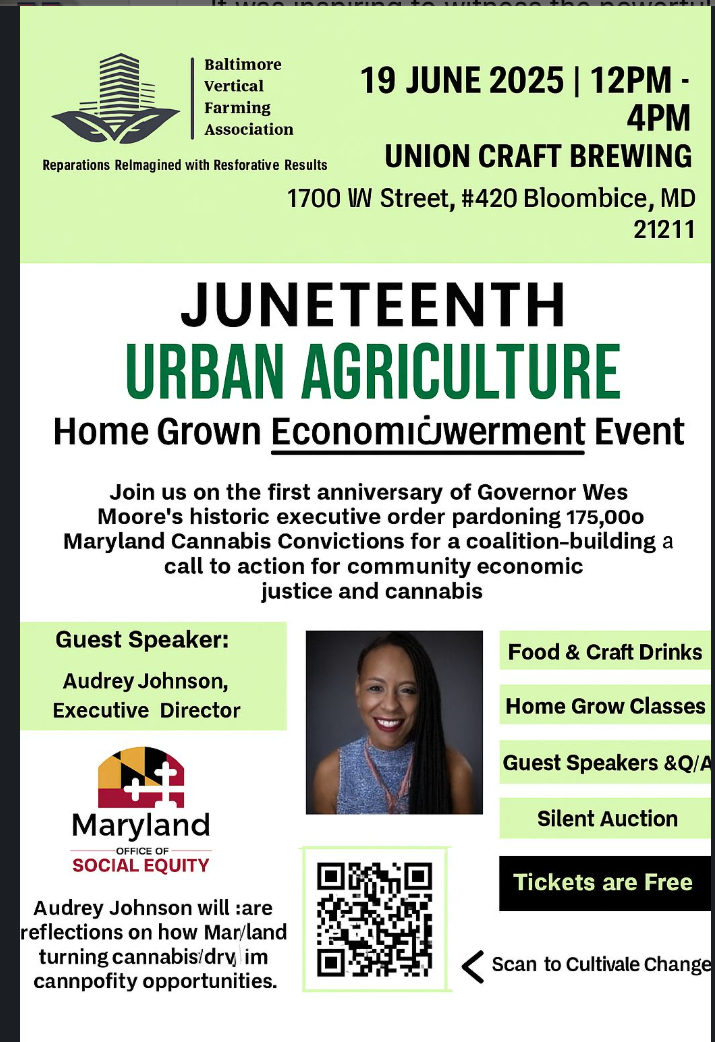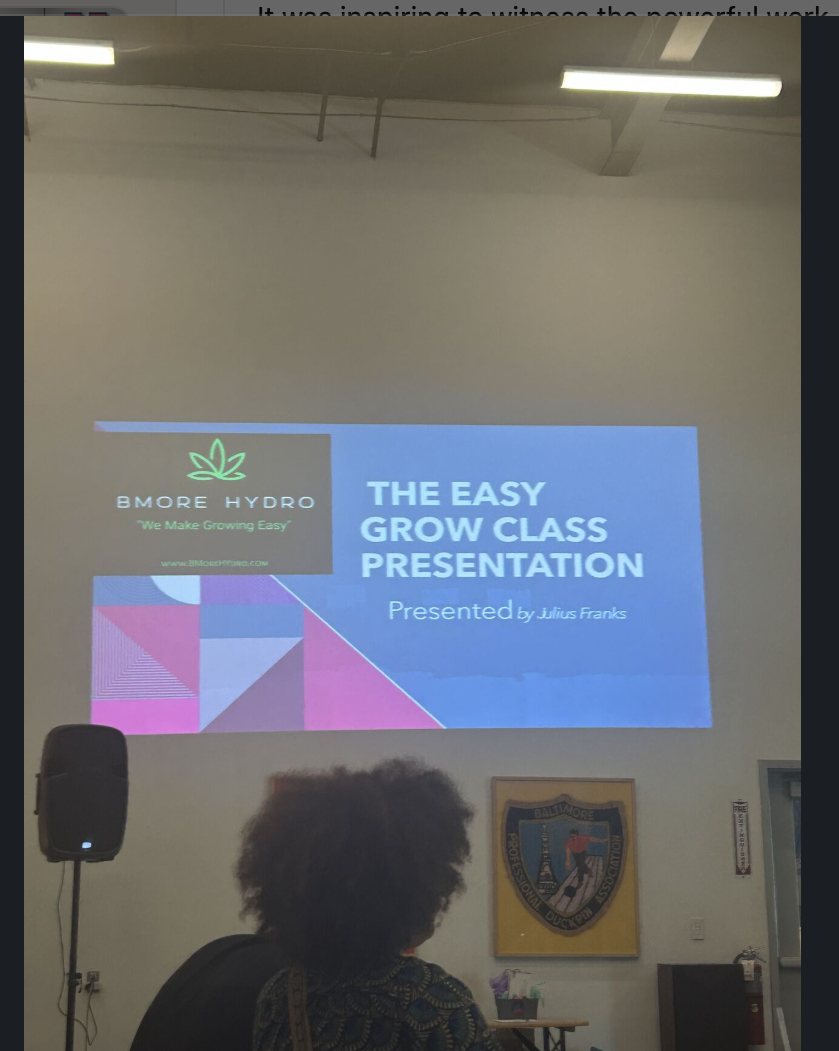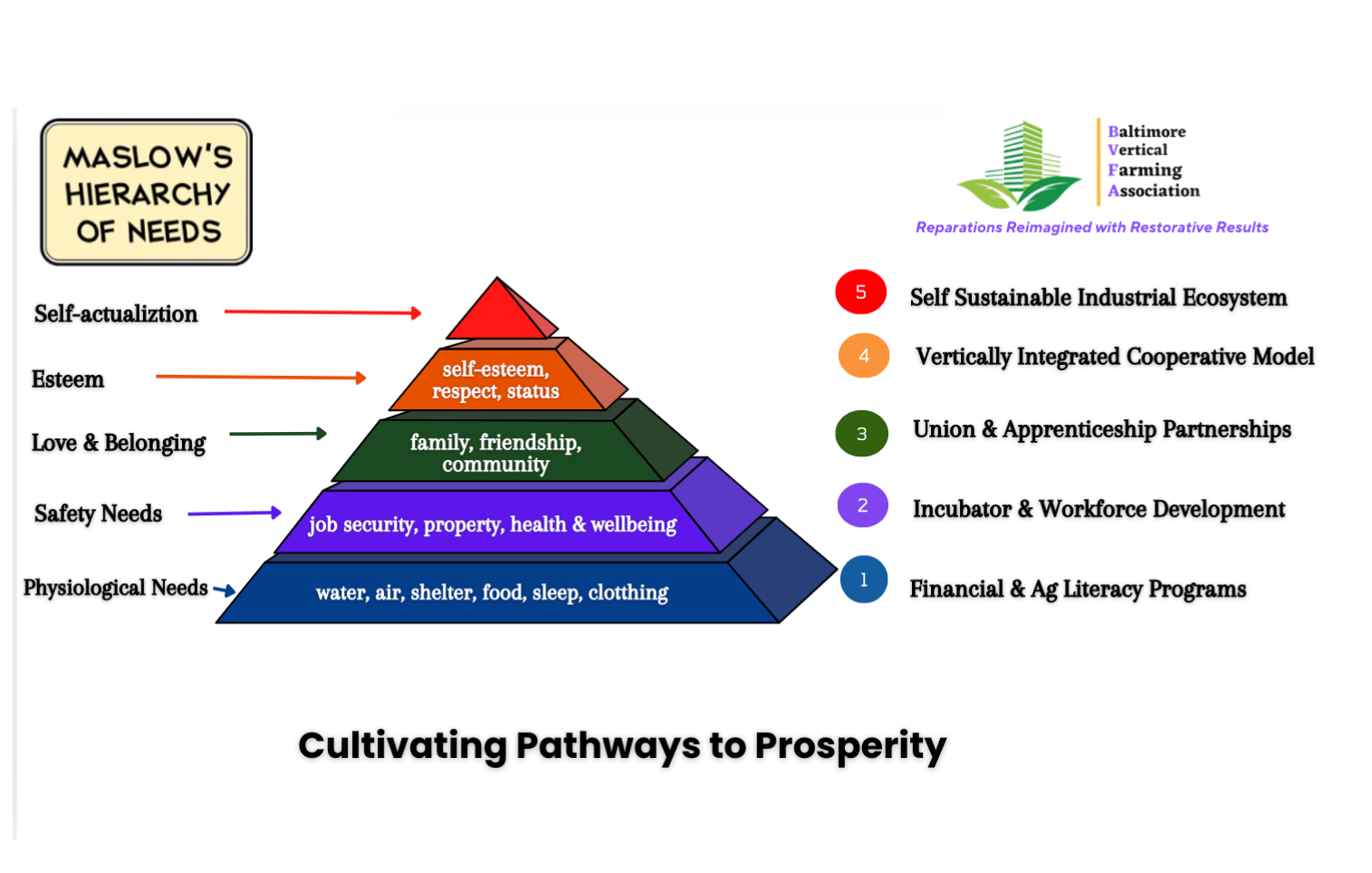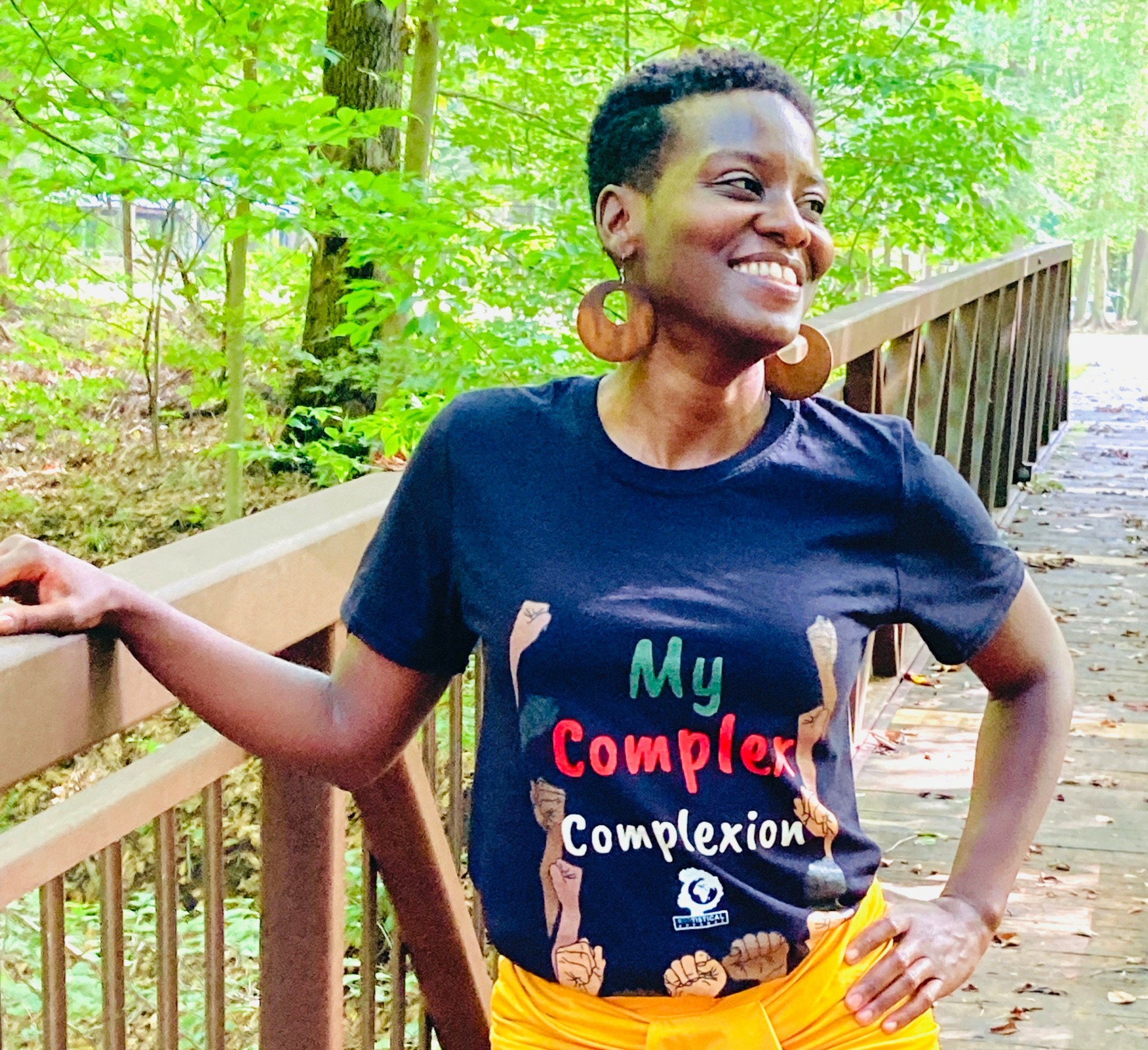We were lucky to catch up with Alisha Edwards recently and have shared our conversation below.
Alisha , thanks for taking the time to share your stories with us today One of the most important things small businesses can do, in our view, is to serve underserved communities that are ignored by giant corporations who often are just creating mass-market, one-size-fits-all solutions. Talk to us about how you serve an underserved community.
Transforming Vacants into Vertical Farming Enterprises
The Baltimore Vertical Farming Association (BVFA) is leading a movement to ensure every Baltimorean has access to food, economic opportunities, and community wealth through indoor farming, controlled environment agriculture (CEA), or urban farming. We envision a world where localized commerce and agriculture are a part of Baltimore’s daily life. Through assembling a broad-based coalition of small business owners, unions, cooperatives, non-profits, and community developers, BVFA aims to develop sustainable urban farms centered around integrated workforce development and economic empowerment.
Our mission is to create pathways to economic empowerment for residents of Baltimore’s deindustrialized communities through innovative business and community development models centered on community wealth building, workforce equity, employee- & coop-ownership, and entrepreneurial resilience. BVFA will act as a hub & incubator, supporting the development of new micro-enterprises and the provision of locally grown produce, cannabis, and hemp. By fostering industry-specific trade groups and coalitions, creating shared resource hubs, and engaging with the city of Baltimore, we combat disparities in food access and the ongoing opioid epidemic while creating a sustainable, locally rooted ecosystem. We aim to provide small businesses and workers in Baltimore with the tools they need to thrive in a rapidly evolving economy.
Great, appreciate you sharing that with us. Before we ask you to share more of your insights, can you take a moment to introduce yourself and how you got to where you are today to our readers.
I am a self-proclaimed Rebel with a Social Justice Cause. As a social entrepreneur, I aim to pursue sustainable community-based solutions to alleviate systemic problems. The Baltimore Vertical Farming Association is aligned with the social equity cannabis reform initiative to ensure minority entrepreneurs have an equitable opportunity to participate in the recreational cannabis marketplace in Maryland.
I unknowingly planted the initial seed of The Baltimore Vertical Farming Association during my sophomore year of college when I embarked on my first solo travel journey to study abroad in England. Since then, I’ve backpacked through Southeast Asia, taught English in Spain, and visited five continents. I now realize that the combination of travel and work experience has cultivated growth opportunities to fulfill my purpose as a social entrepreneur. The problem-solving skills I developed, navigating unfamiliar territories, making decisions, and overcoming challenges, activated my innovative spirit to push the boundaries of what’s possible.
My career spans industries such as Healthcare, Commercial Real Estate, Cannabis, and the Non–Profit Sector. Still, one recurring theme has always been my passion for impactful restorative justice reparations through strategic partnerships. I love working with community leaders on the front lines, providing sustainable solutions to systemic issues such as persistent poverty. Throughout the year, I’ve had the opportunity to oversee social equity partnership development, strategic planning, cannabis advocacy, and much more.
I’m a highly creative, future-focused, service-oriented professional with proven experience resulting in solid interpersonal relationships with clients, peers, and executive leaders.
Now, I live in Baltimore City, the once-thriving industrial hub. I’m committed to creating pathways to economic empowerment for Baltimore City by developing and implementing equitable and responsible cannabis-related ecosystems through vertical farming, innovative education, and value-added sustainable practices. We want to build Baltimore’s strong and prosperous future by empowering residents and forming sustainable strategic partnerships.
Let’s talk about resilience next – do you have a story you can share with us?
We already know females are 3 times less likely to be diagnosed as neurodivergent. Research also suggests black people are 5 times less likely to be diagnosed as neurodivergent. Combine that with sexism, systematic oppression, and underrepresentation… I was one of those late-diagnosed black females.
Here’s my story of self-resilience…
I am a dark-skinned black woman who chooses to wear her natural hair and calls out this country’s predatory practices. I am a social entrepreneur and creative who loves dogs. I also have a working diagnosis of Autism and ADHD, and utilize cannabis to survive in this chaotic world that 99% of the time makes zero sense to me. My passion stems from representation, especially for people who look like me.
Growing up, I always knew my brain was wired differently. Despite being academically bright, I was always a talkative child who would get in trouble for “daydreaming” in class. The girl who would go the extra mile to ask all the extra questions during lessons to make sure she understood what was being taught. And of course, we can’t forget the chronic social anxiety that made school a daily exhausting ordeal, as well as the ability to remember and complete homework the night before it was due. With no additional support at school and matching stereotypical labels, it was safe to say my education was nothing less than chaotic. It was only after speaking to a therapist in my early 30s that I entertained the idea of checking if my brain was actually wired differently.
Being black and female worked as a double invisibility when it came to being picked up as a neurodiverse individual. However, rather than focusing on the system’s failings, acknowledging intersectionality’s importance is a better use.
In society, being female is tough. Being black is tough. Being neurodivergent is tough. However, these identities do not exist in isolation and should not be treated as such. Being black, female, and neurodiverse comes with its unique challenges that require unique considerations and accommodations. I know that in healthcare, education, and even workplace settings, I have had to violently advocate for myself in ways some of my counterparts have not had to.
On top of all of this, mental health is still massively stigmatised in the black community. This means the same marginalised individuals are often unwilling or not open to the idea of getting diagnosed or receiving the support they would benefit from, for fear of how the community around them may perceive it. It’s one blocker after another.
Despite these constant challenges, I believe being a neurodivergent black woman has made me a super resilient individual. It has made me the most lateral-thinking problem solver and the most creative spirit known to man, and it allows me to connect with other marginalised groups, whether they face the same struggles as me or not.
I discovered cannabis in my freshman year of college, and it forever changed my life on a multitude of levels. The health and wellness benefits of the plant saved my life. At the same time, black men were being locked up for cannabis, which, as a byproduct, devastated the black community. I now aim to facilitate Reparations Reimagined with Restorative Results via education, cannabis economic development, and vertical farming technologies to right these wrongs.
What’s been the most effective strategy for growing your clientele?
Being authentic is my most effective strategy for growing this social enterprise. It fosters trust and stronger community connections by aligning my actions with my actual values, leading to greater self-awareness, integrity, and a more meaningful life. While requiring courage and vulnerability, strategic authenticity has also involved identifying the overlap between my authentic self and what is effective for a given situation, rather than being authentic at all costs. This has meant understanding my core values, setting healthy boundaries, practicing self-compassion, and being consistent in my actions to present my genuine self to the world. The world needs new leaders who are providing sustainable solutions to systemic issues like poverty and climate change, and the Baltimore Vertical Farming Association is here to restore Baltimore City to its greatness.
Contact Info:
- Website: www.baltimoreverticalfarms.org
- Instagram: https://www.instagram.com/baltimorevertical_farmingassoc/
- Linkedin: https://www.linkedin.com/in/alisha-edwards-mba-76a0161a9/
- Youtube: https://www.youtube.com/watch?v=2DKqmHH-KSY
